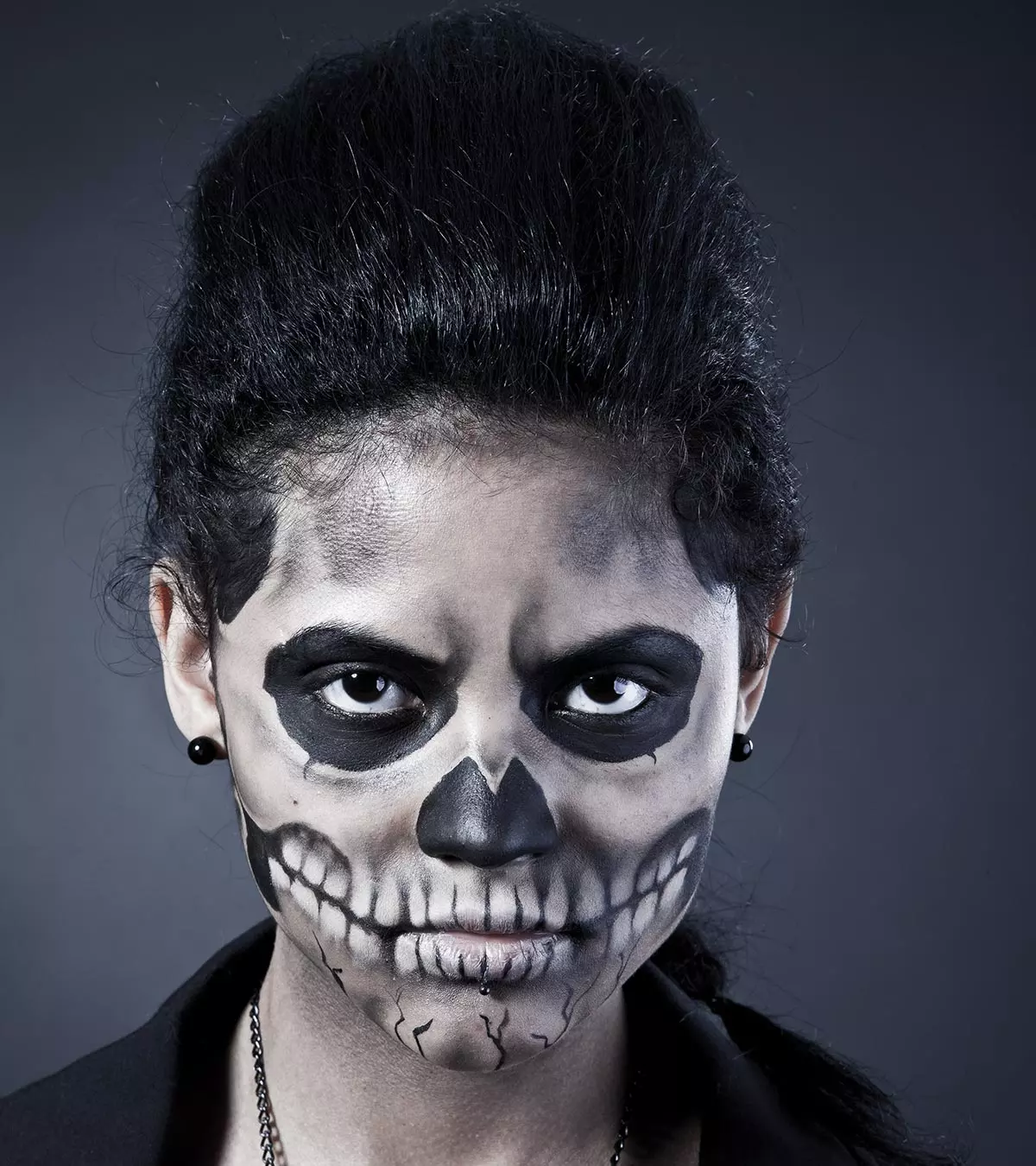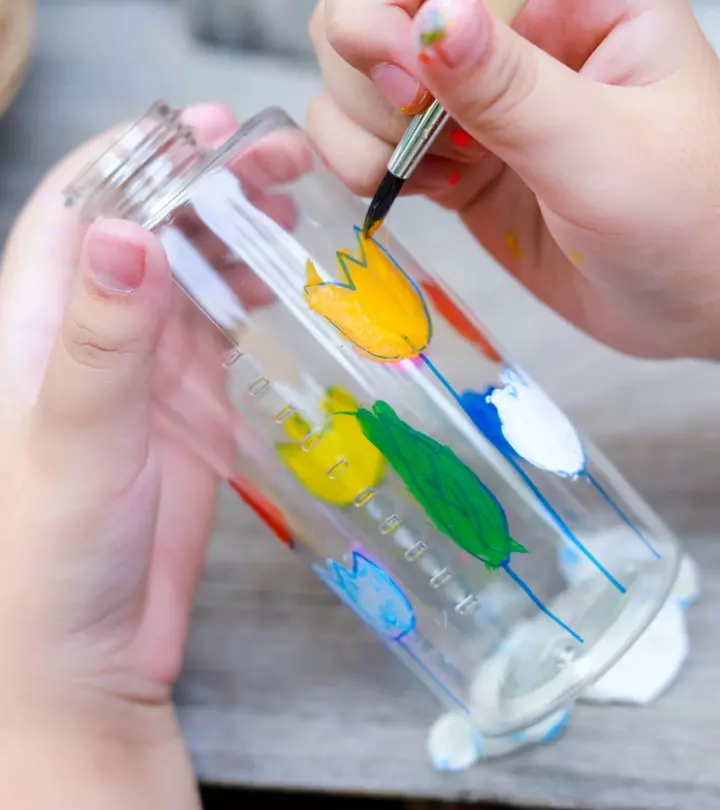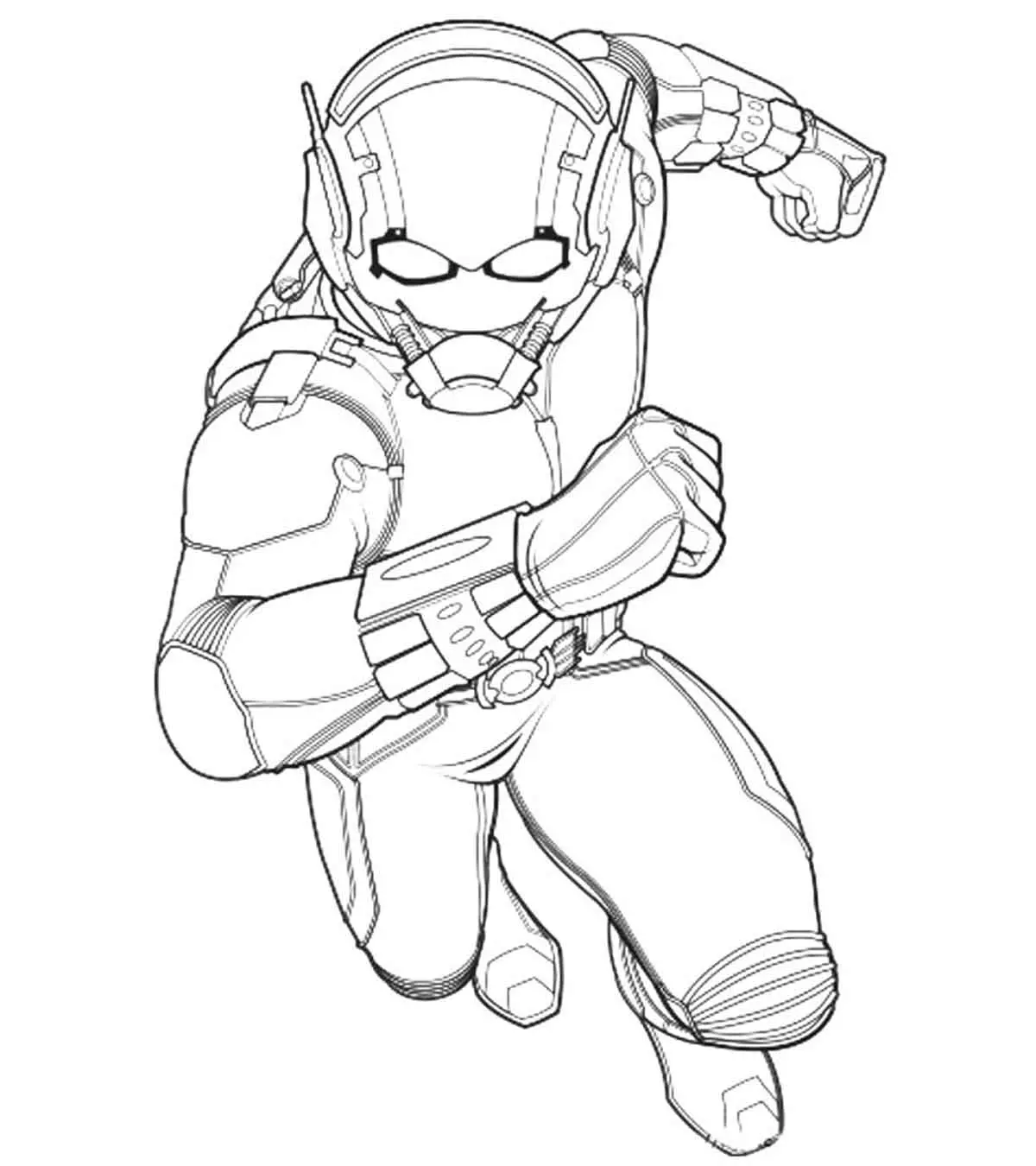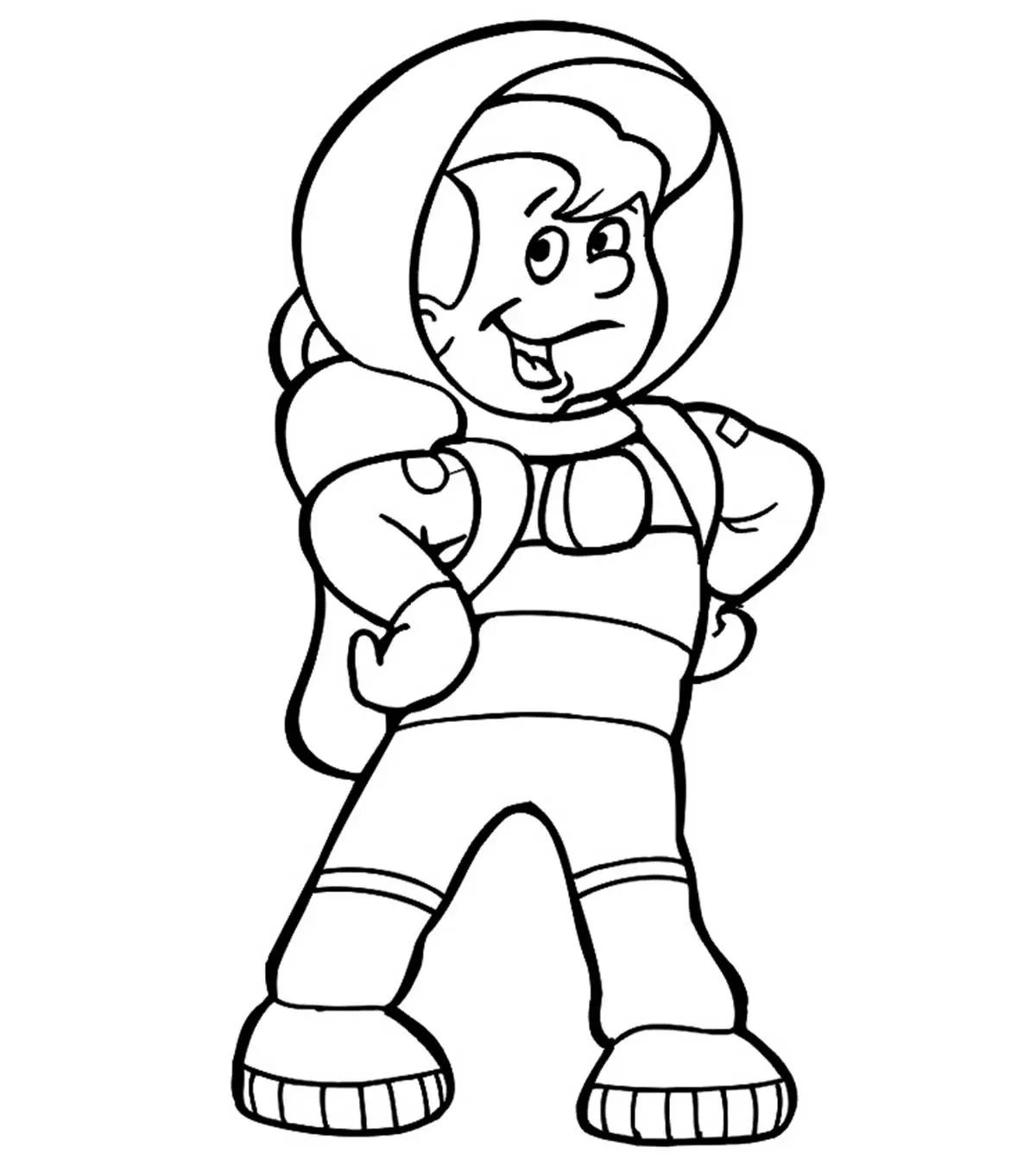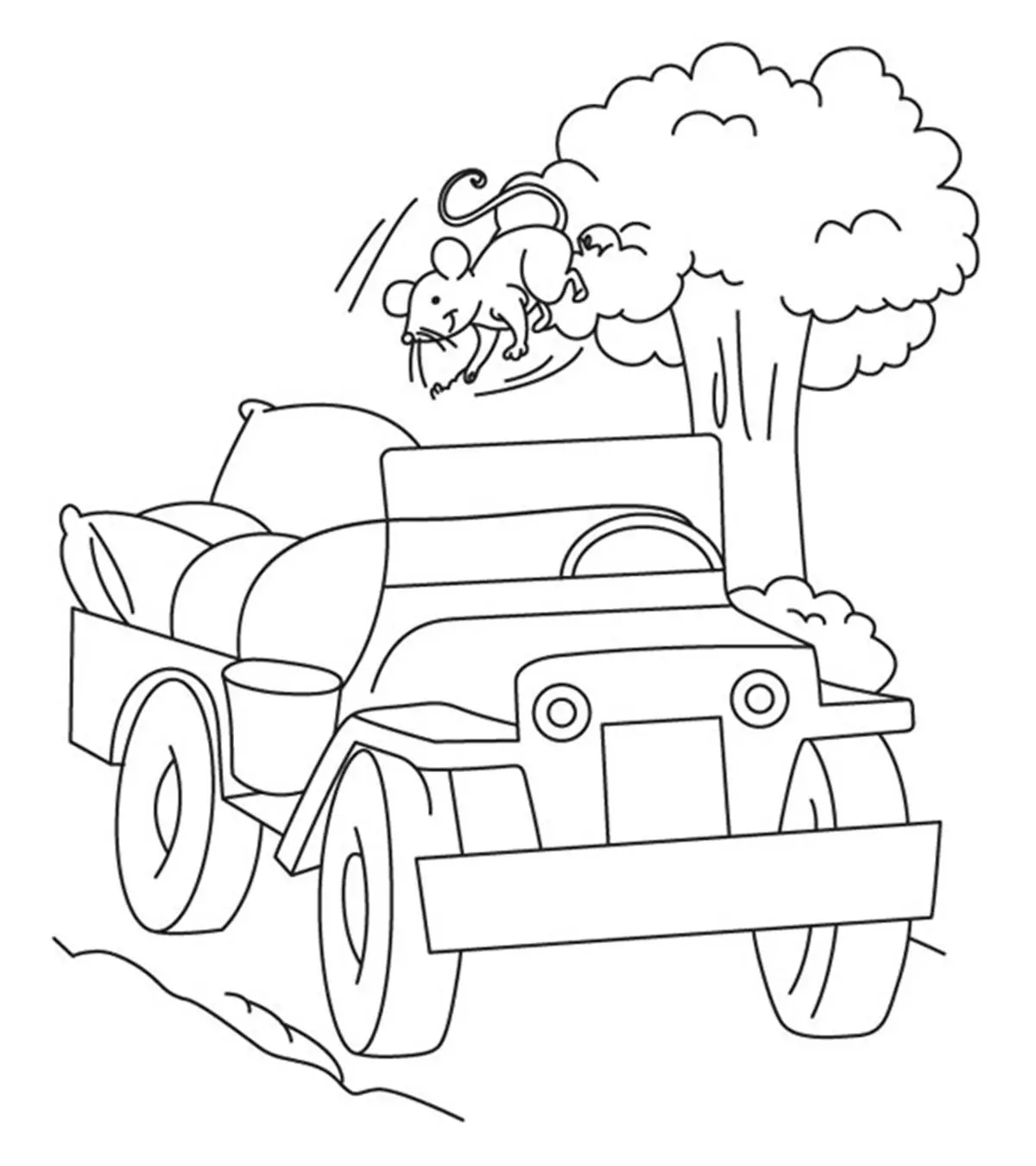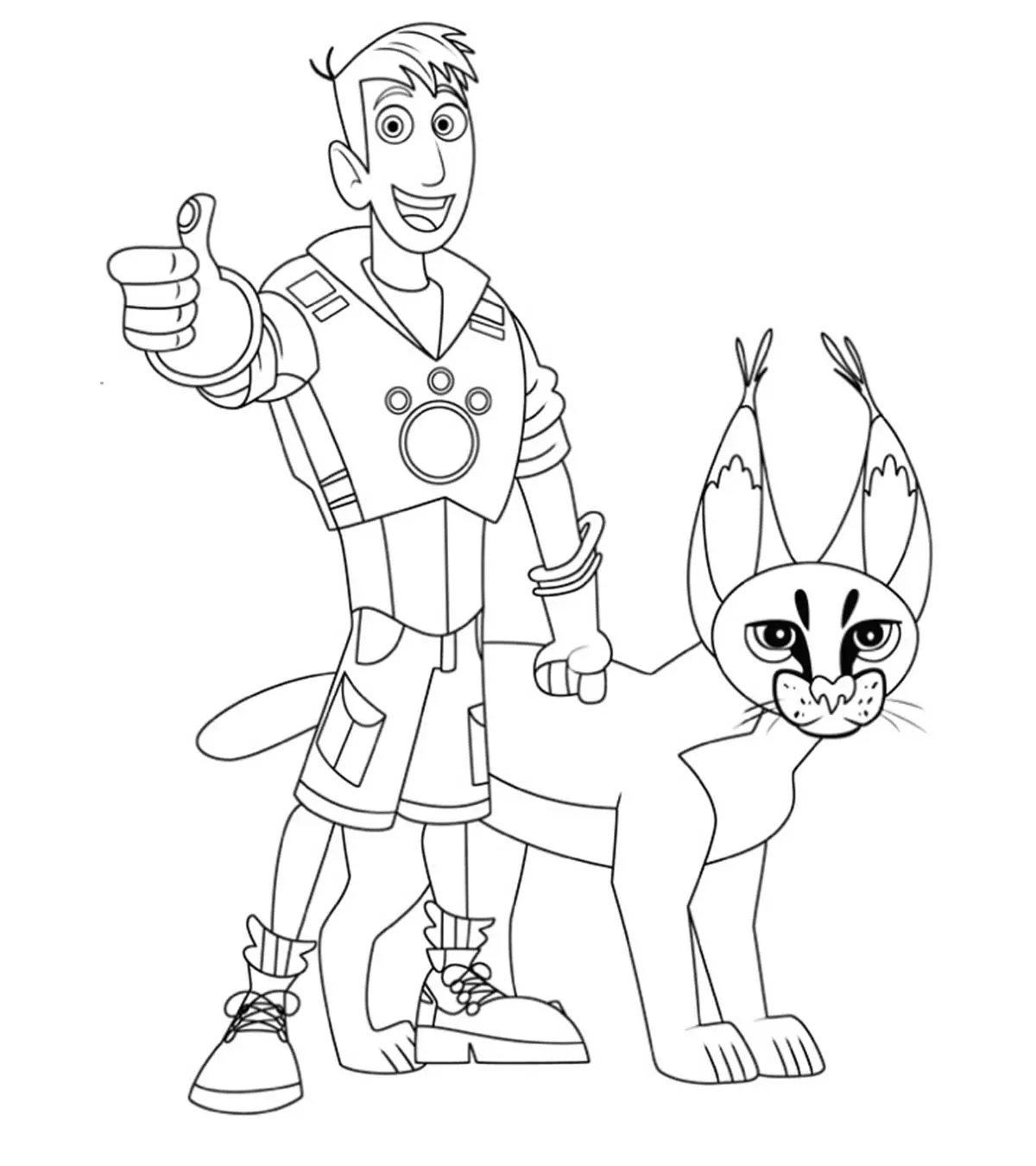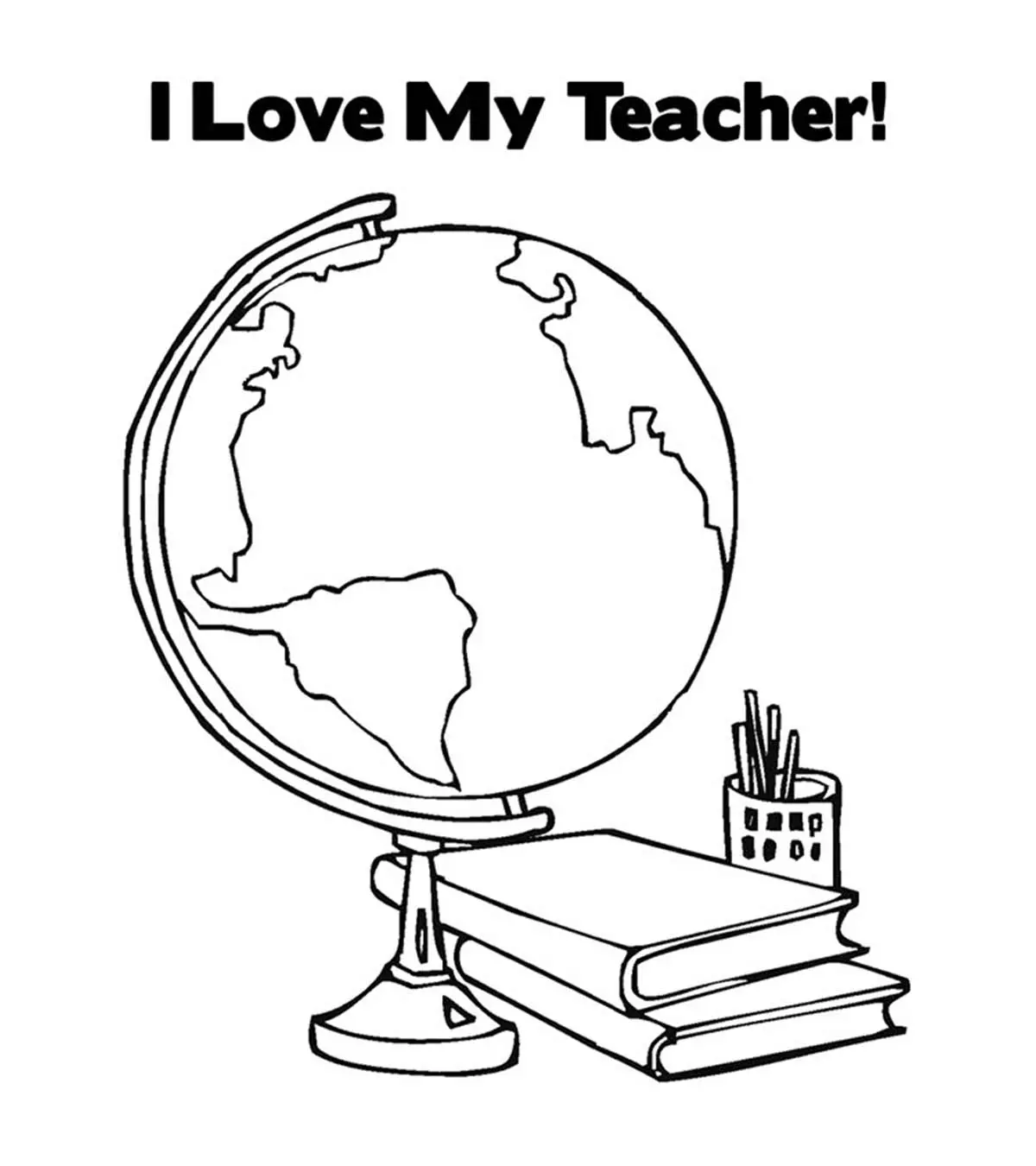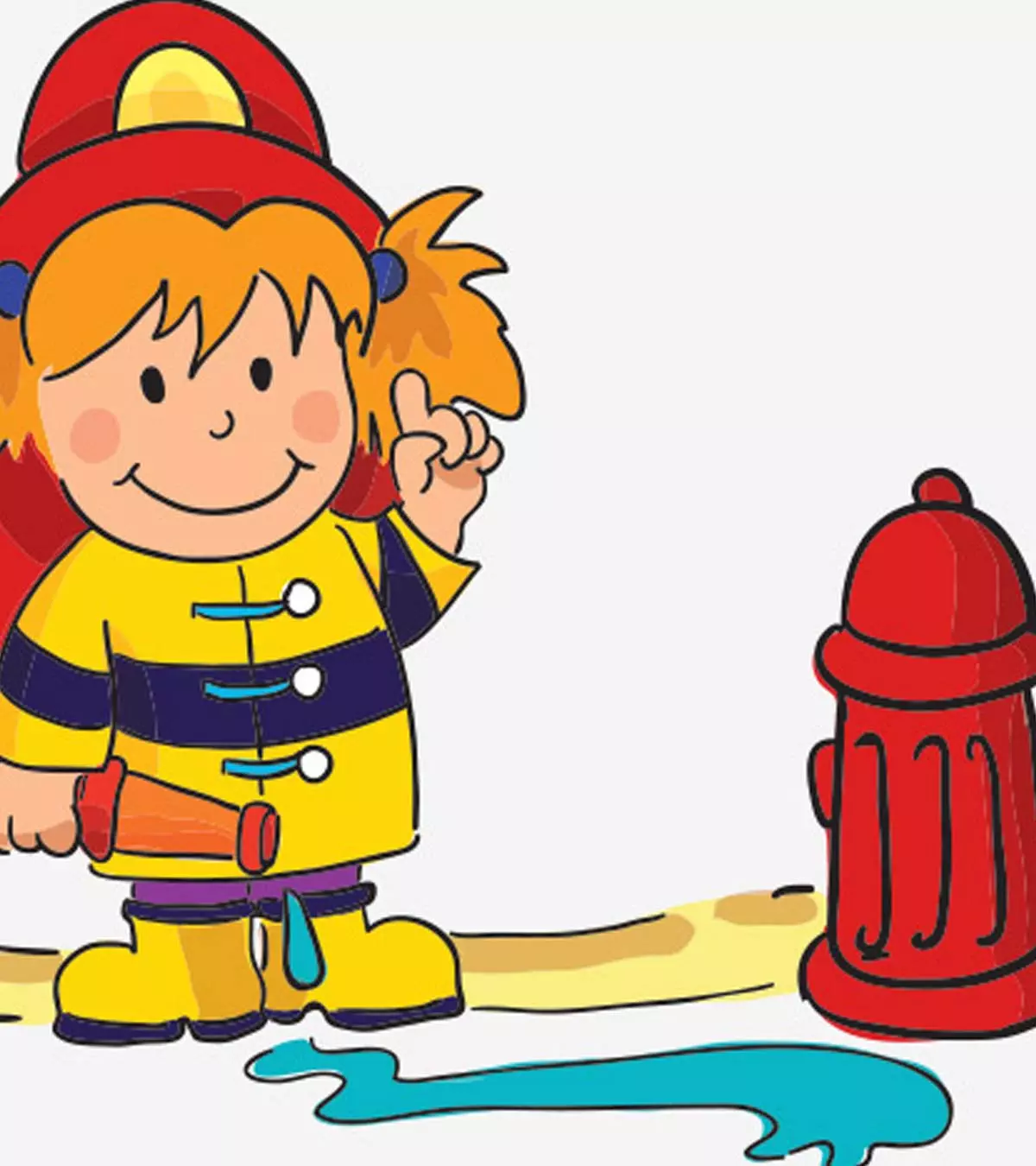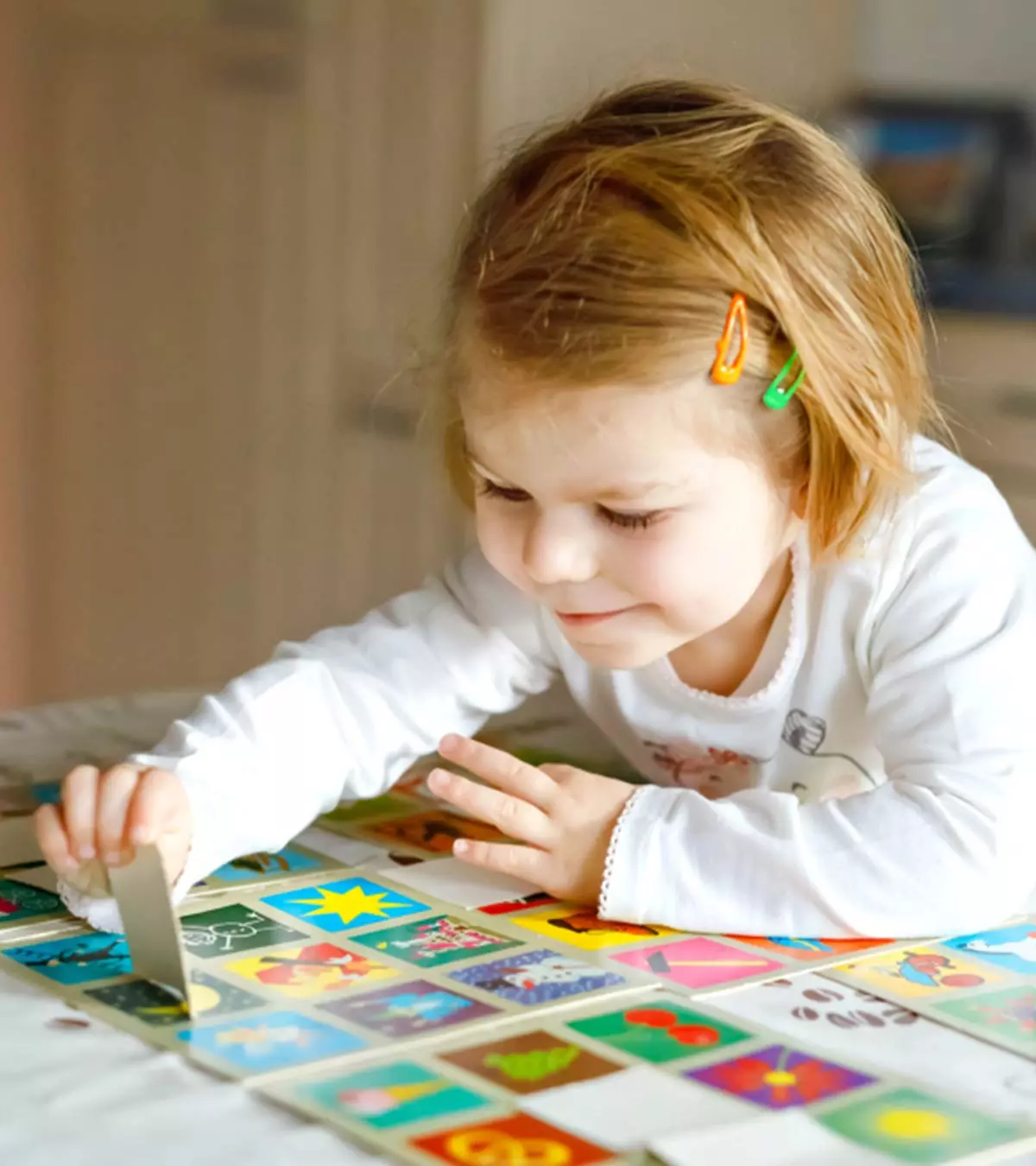
Image: ShutterStock
Memory games for kids are fun, engaging, and educational. You can incorporate memory games into your child’s everyday activities to blend learning and fun. These games do not need any special equipment. They help you tactfully teach the child how to accept and emerge through challenges. They help improve your child’s cognitive functions while engaging them in a fun manner. They boost kids’ memory, make them more creative, and enhance their problem-solving skills, making them an important tool for early childhood development.
These games can be played during traveling, picnics, or even while waiting at the doctor’s office. Read this post where we bring a list of exciting memory games that can be played with children anytime and anywhere.
Key Pointers
- Memory games enhance visual and recognition skills that improve cognition.
- Single-player memory games can be played by asking the child to quiz themselves and develop solutions, such as solving math problems.
- Examples of group memory games are word chain, memory train, and number string, among many other games.
The Significance Of Memory Games
Here is why it is good to encourage kids to play more memory games.
- Memory games go beyond just building memory power and skills. They also serve as concentration games and help children pay attention to little details.
- Although short-term memory is the basis of most memory exercises, these games and activities may also improve a child’s long-term memory (1).
- Memory games kindle a child’s visual memory and recognition. With most memory games involving matching games of cards and pictures, kids begin to form mental images of patterns and figures and learn to match them in a quick time.
- Auditory memory games may help develop a child’s listening and processing capabilities. The child could also learn when and how to follow instructions.
- Memory improvement games encourage children to think before they act, which could help develop their critical thinking, mental agility, and decision-making abilities.
- Memory games promote social interaction among children. Children playing in groups learn teamwork and essential communication skills, improving their cognitive development.
 Did you know?
Did you know?Memory games could help in overall cognitive development in children (2). So, pick a few suitable memory games from this list of the best memory games for kids.
20+ Effective Memory Games For Kids
Word chain memory games
Repetition is a natural way of building memorizing skills and increasing the repository of vocabulary words in children. Word chain memory games are a type of brain exercise for kids that can improve their presence of mind and memory retaining capabilities.
These word games for kids do not require any special equipment. It’s just you, your kids, and your wits.
1. Memory train game
How to play:
- Pick a category like a summer vacation, picnic, school, shopping, market, etc.
- Ask the children to sit in a circle and start the game by saying the opening line. For instance, “For my summer vacation, I packed a bathing suit.“
- The next player would repeat the sentence and add another item to pack for the summer vacation. “For my summer vacation, I packed a bathing suit and sunglasses.”
- The game proceeds by players repeating the previous list and adding a new item to the list.
- When a player forgets the items on the list, they are out of the game.
- You could even make it a rhyming game by asking kids to choose words that rhyme, from any category. This thinking game can test the memory skills of children.
2. Round robin
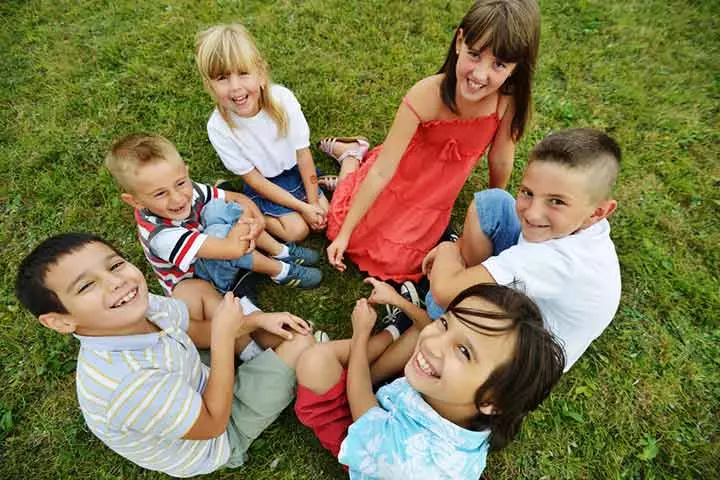
Image: Shutterstock
How to play:
- Ask the kids to sit in a circle. This storytelling game begins with an opening line by one player.
- The next player repeats this sentence and then adds their sentence.
- The story continues to build until one of the players forgets a sentence in the storyline.
- Encourage the children to be creative and crank up the story with their twists and turns.
- You can also play a variation of the game and build the story up word by word.
3. Number string
How to play:
- Suitable for kids aged less than ten years.
- The first player starts with a number.
- The next player has to state the previous numbers and add a number of their own.
- Kids have to create a number string without forgetting the previous numbers. Anyone who forgets a number is out of the game.
- You can make problem-solving games like this one a bit tough for older kids by asking them to sum up the numbers after stating the string of numbers.
4. Don’t finish that word
How to play:
- The aim is to build as big a word as possible, letter by letter.
- The first player opens with a letter; let’s say he calls out the letter “H.”
- The second player adds the letter “O.” For every letter added, the player’s score increases.
- The third player should refrain from adding letters like “G” or “T,” since these letters will complete the words HOG and HOT.
- Instead, they add a letter that does not complete the word, say “M.”
- The fourth player can now challenge the second player if they think there is no word beginning with HOM. If the second player accepts the challenge, not realizing that adding an E makes HOME, he forfeits a point. If the second player calls out HOME, the challenger loses a point.
- The play continues until a predefined score is reached by one of the players.
5. Sound chain game
How to play:
- Ask the children to sit in a circle and start with a certain pattern, like two claps.
- The next player repeats this pattern and adds their pattern to the sequence, like two claps and a snap.
- The game goes on, with children repeating the previous patterns while adding their own. If a player misses out on the sequence, they are out.
Matching memory games
The aim of a matching or concentration game is for the participants to pair up matching words, pictures, or cards. Memory card games for kids significantly improve their visual memory, which is key to improving their reading and writing skills. A child with a good visual memory will remember how concrete words are spelled by memorizing the order of the letters in words (1). Matching games for toddlers and kids could also improve their retention capabilities.
6. Memory card game
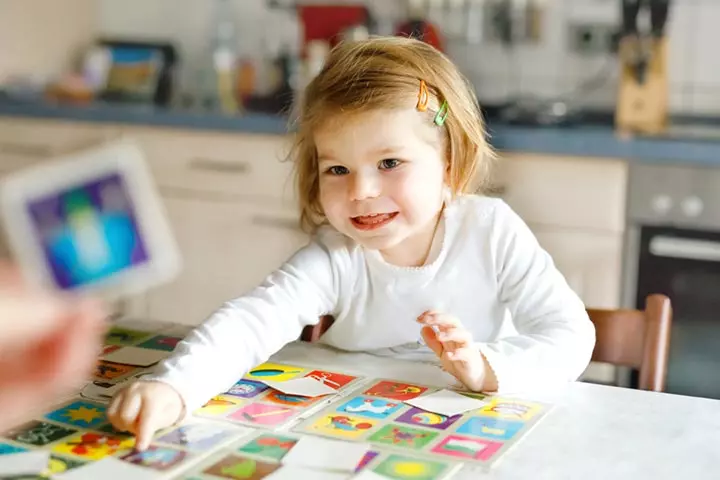
Image: Shutterstock
You will need:
- An even number of picture cards, each picture card must have a pair.
- You can also use a standard pack of playing cards.
How to play:
- Spread the memory cards face down, randomly on the table.
- The players take turns and pick out cards in each turn.
- They do not reveal the card to the other players. However, you could play a variation of the game that includes revealing cards.
- If the two cards match, the player can collect them and have another go. If the revealed cards do not match, the player places them face down in the same spot and waits for their next turn.
- Then face down in the same spot and wait for their next turn.
- When all the pairs are matched, each player counts their cards. The player with the most pairs wins.
Tips:
- Laminating your cards will make them last longer.
- You could play variations of this game according to the age of your child.
You can work out a creative solution if your child does not feel interested in participating in memory card games. Nae, a mother of two, shares the technique she used to make her son, whom she calls Dimples, engage in such a game. She says, ”Dimples hasn’t really been fond of them. So when our business scanner/fax machine was on the blink I had extra ink canisters that needed to be used before we installed the new machine. I used the leftover ink cartridges to print family photos and did a bunch of doubles. Viola (Voila)- family memory match.
“I used the Doubles to surprise Dimples with a Memory match game featuring him, he hadn’t yet seen what pictures I had printed out. Dimples and I had turns trying to match pairs. First, he wanted to play by claiming the pictures as his own, so if he ‘won’ a pair they were his, and if you won a pair you then got a second turn to flip a set of cards. We also played a full board by keeping them spread out until all pairs were turned upright. For a game he isn’t too fond of he really enjoyed himself and he was keen to see which photos I had printed out of the family (i).”
7. Word list matching game
You will need:
- Handwritten or printed word cards. Make sure that each card has a pair.
How to play:
- Shuffle the word cards and place them face down on the table.
- Have the children gather around and take turns to reveal two cards each. The aim is to find a matching pair of word cards.
- According to the age group playing, you can have the cards read the same vocabulary words or give synonyms or antonyms of a word.
8. The magic cup game
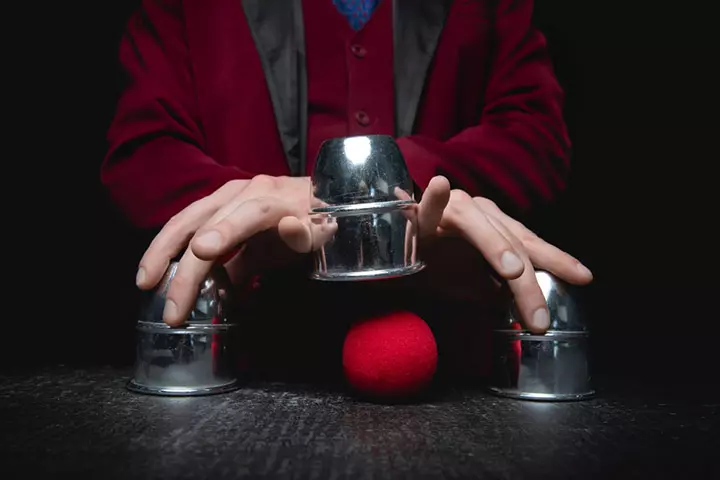
Image: Shutterstock
You will need:
- Three plastic or paper cups
- A small object like a coin, a button, or a tiny ball.
How to play:
- Invert the three cups on a platform and place the small object under one of the cups. Make sure that your child notices where you are placing the item.
- Ask your child to concentrate on the cup with the object, as you shuffle the cups.
- You can start slow, with just a couple of movements, and then go faster as your child gets the hang of the game.
- After you are done shuffling, ask your child to pick the cup concealing the object. If they guess right, give them a chance to shuffle the cups.
9. Memory mismatch game
How to play:
- Split the group into two teams.
- Ask one team to take a good look at the room and then leave. In the meantime, the other changes five things around the room.
- They could change the arrangement of the furniture, the position of lampstands and rugs, etc.
- After a set time, the team that left the room comes back and tries to identify the changes. Their score increases with every change they discover.
- When they’re done, the other team leaves, and the winning team rearranges the room.
- The team with the most points wins.
10. Spot the difference
How to play:
- Ask your child to examine what you are wearing and how you look.
- After a couple of minutes, go into a room and make a small change. You could braid your hair or remove your watch.
- Come back and ask your child to guess what you changed.
11. Drum beats

Image: Shutterstock
You will need:
- Drums or upturned pots and vessels
- Drumsticks or wooden spoons
How to play:
- The game is simple. The first player plays a rhythm on the drums or his set of upturned pots.
- The second player observes, listens, and tries to mimic this rhythm.
- Take turns to come up with new and goofy rhythms that the children have to remember and repeat.
12. Picture bingo
You will need:
- An even number of picture cards. Make sure that each picture has a pair.
How to play:
- Take one of each picture card pair and distribute them equally among the players. This becomes each child’s dashboard.
Spread the rest of the cards face down. - As they do in the memory card game for children, each child takes turns to reveal a card. If it matches any of the pictures on the player’s dashboard, they have a match and can pick again. Else, they replace the card in its original position, face down.
- The first player to match all the pictures in their dashboard wins.
13. Memorize what’s on the tray
You will need:
- A tray
- Some objects from around the house
- A piece of paper and a pen for each child
How to play:
- Place the objects you picked up from around the house on the tray and have the children gather around.
- The children look at the objects for a minute and make a mental list of them.
- When the time is up, remove the tray and ask the children to write or draw down as many things as they can remember.
The child who lists the most items correctly wins. - You can also remove one of the items and ask the children to find the missing item. This is a good way to break a tie.
14. The money game

Image: Shutterstock
You will need:
- A pile of coins from different denominations.
- A timer
- A piece of cloth
How to play:
- Arrange a few coins in rows on a table. For instance, you could arrange three one rupee coins in the first row, followed by five two-rupee coins and a five-rupee coin.
- Ask the children to look at the arrangement for a specific time.
- Then cover the coins with the cloth and ask the children to form a similar sequence giving them each a set of coins.
- The child who arranges the correct sequence in the shortest time wins.
 Point to consider
Point to considerQuick memory games
Quick memory games heighten the child’s concentration and memory skills as they try to follow your instructions. These brain teasers could enable children to focus longer on more complex activities to aid in learning, education, and problem-solving.
15. Memory master
You will need:
- Pictures
- Timer
How to play:
- Show the children a picture and ask them to observe it for sixty seconds – you could create a picture flashcard or just show them a picture from a magazine or on the phone.
- Then, quiz each one with questions from the picture. For example, if the image had many colorful butterflies, you could ask: How many butterflies did you see? What colors did you see? Where was the biggest butterfly?
- Give them a point for every right answer. The child with the highest score is the official Memory Master.
16. The category game
How to play:
- Gather the children and call each one up individually.
- Give each child a category and ask them to list as many related words as possible in under a minute.
- Pick a category according to the age of the child. For young children, you could say, “name as many colors as you can.” For older children, you could give specific instructions, like “list words that also mean red.”
- To make his vocabulary word memory game a bit more challenging, ask the kids to perform a small task, like chaining paper clips together, while they answer.
17. Traffic lights
How to play:
- Take a little stroll through a nearby park or even head out to your backyard.
- Instruct the children to run when you say, ’green light,’ walk when you say, ’amber light,’ and stop when you say, ’red light.’
- You can add more instructions like ’it’s raining’ and have them sway like a car’s windscreen wipers and ’tornado’ for spinning around.
18. Map it
You will need:
- Paper
- Pencil
- Crayons and markers
How to play:
- Head out with your child on a routine route.
- Have them observe the surroundings, including the crossroads, the buildings, the trees, and the people.
- When you get back home, hand your child a paper and some colors and let them get artistic trying to remake the scenes they had witnessed.
19. Memory experiment
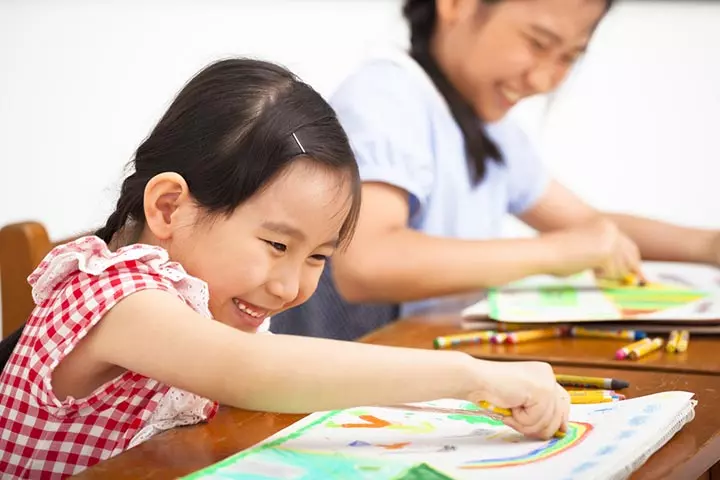
Image: Shutterstock
You will need:
- Paper
- Pencil
- Crayons and markers
How to play:
- Have the children seated and read out a list of ten nouns (preferably, places, or things).
- Wait a while and then ask each child to list out as many nouns as they could recall.
- Now, give them another ten nouns and have the children draw out suitable images for the words they remember.
- Finally, ask them to list the second set of nouns and compare them to the previous recollection.
- Check if the drawing made any difference in helping them recollect.
20. Single-player memory games
How to play:
- Teach your children to engage in single-player memory games and do away with boredom.
- You could tell them to name the alphabet backward, spell out their name back, or count down from 50.
- You could also ask them to quiz themselves with little math problems involving basic operations.
21. Matching card games
You will need:
- Playing cards
How to play:
- Invite the kids to shuffle those cards and lay their faces down.
- Let them take turns flipping two cards, aiming to get the matching pair.
- Now ask them if they remember where each card is hiding. If they find a matching pair, they get another turn. If not, they have to flip the cards with the faces down and try again.
- The more they talk about game plans, the more their memory and thinking skills improve.
- The player with more matching pairs wins the game.
 Quick tip
Quick tipFrequently Asked Questions
1. How should I improve a child’s working memory?
Encouraging active reading, establishing connections, honing visual and teaching skills, and incorporating multisensory methods while learning are great ways to improve your child’s working memory (3).
2. Do brain games make my child smarter?
Although playing brain games for kids may not enhance a child’s ability to perform daily tasks, studies have shown that certain brain training games may boost working memory and cognitive functioning (4).
Assist your child in choosing the best memory games to engage their grey matter. Memory games for kids can be fun to keep their minds active. They can be played solo or in a group setting. Memory games for younger children can help them acquire basic memory skills, while memory games for older children can help them improve their learning and recall abilities. Under adult supervision, children may also be encouraged to play online memory games.
Infographic: Why Including Memory Games In Children’s Playtime Is Important?
Children can learn essential cognitive skills through playing games. Playing memory games can provide a beneficial opportunity for children to exercise their memory and recall abilities. Check out the infographic below to learn about some of these benefits.
Some thing wrong with infographic shortcode. please verify shortcode syntaxIllustration: Awesome Memory Games For Kids To Enhance Thinking Skills
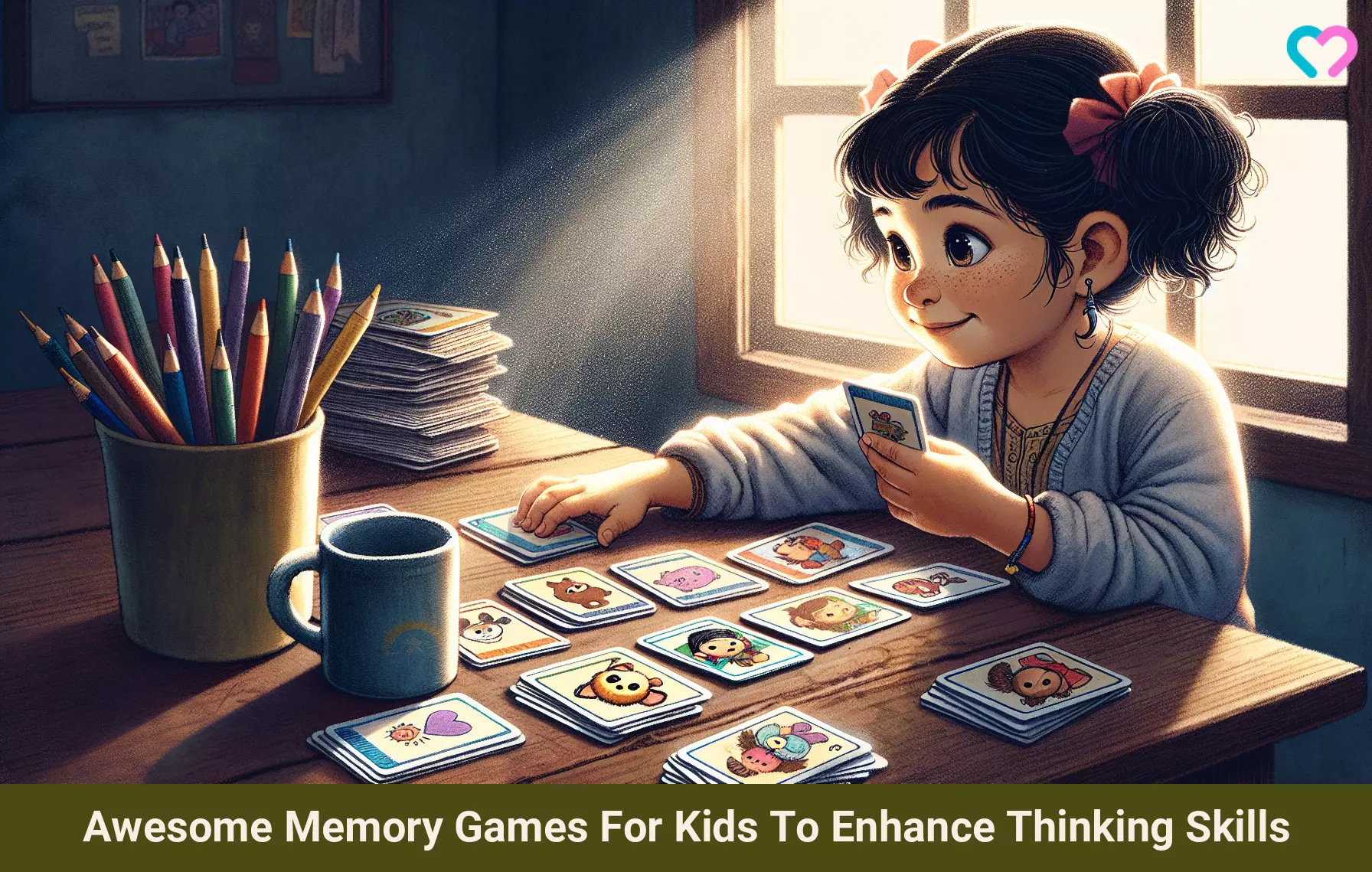
Image: Dall·E/MomJunction Design Team
Help your child boost his visual memory by choosing the best memory games. Increase their concentration through interactive fun and play!
Personal Experience: Source
MomJunction articles include first-hand experiences to provide you with better insights through real-life narratives. Here are the sources of personal accounts referenced in this article.
i. Family photo memory match; BlogspotReferences
1. Memory Experiments, Washington.edu.
2. Resources For Family With Young Children At Home, HSS.edu.
3. 8 working memory boosters; Understood.
4. Rui Nouchi et al., (2013); Brain training game boosts executive functions, working memory and processing speed in the young adults: a randomized controlled trial; PLOS One.
5. Developing memory; The Pennsylvania State University.
Community Experiences
Join the conversation and become a part of our nurturing community! Share your stories, experiences, and insights to connect with fellow parents.
Read full bio of Katherine Paxton
Read full bio of Sagari Gongala
Read full bio of Harshita Makvana
Read full bio of Nisha Bharatan






